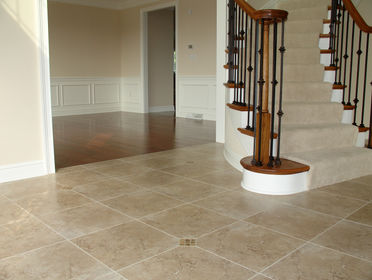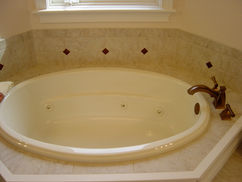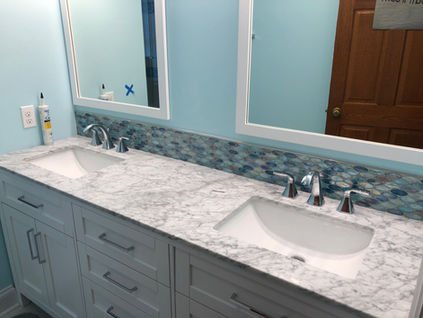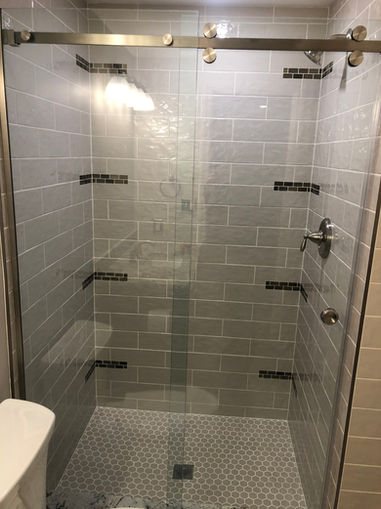Ceramic & Porcelain Tile
Features
Hygienic
Ceramic and porcelain are better at resisting allergens, bacteria, and odor compared to other solutions.
Durable
Ceramic and porcelain are the most durable flooring products if installed correctly.
Stylish
A wide variety of colors and styles ensure a custom touch to your home.
About Ceramic & Porcelain Tile
Ceramic and porcelain tiles are some of the most durable products out there if installed correctly. They are typically used in residential spaces, but commercial spaces are starting to adapt to it. There are some differences between porcelain and ceramic. Porcelain is the same color throughout while ceramic tile has a coating on top. Porcelain is one of the most expensive and labor intensive flooring installations because of all of the prep and steps that go into it. That being said, ceramic is typically less expensive because it is usually used only as a wall tile, whereas porcelain can be used as a wall or floor tile as long as it is labeled as a 'fully-body porcelain'. Porcelain is very sturdy and can be used in a wide range of temperatures, as it expands and contracts without cracking. It is a great fit for outdoor applications because it is frost-proof. Porcelain is mostly utilized in pool areas, decking, and large formats such as exterior commercial applications. The hard surface flooring industry is very much in favor of porcelain tile but ceramic is up-and-coming, especially for wall applications, because of its lower cost.
Wall tiles are more decorative in nature and are typically used in showers, backsplashes, and accent walls, though their vertical applications are almost limitless. With a large variety of designs and colors, wall tiles can add impressive design elements to any room. At our showroom, we have many decorative and basic wall tiles to choose from.
Not all wall tiles can be used as floor tiles, but all floor tiles can be used as wall tiles if desired. Floor tiles are specced to withstand foot traffic, whereas wall tiles can crack under all of that pressure. The only time a 'wall tile' can be used on the floor is if it is labeled as such by the manufacturer. Floor tiles tend to be more on the matte side of finishes to add grip. This is especially important in shower applications, as the water can make the surface slippery.






















